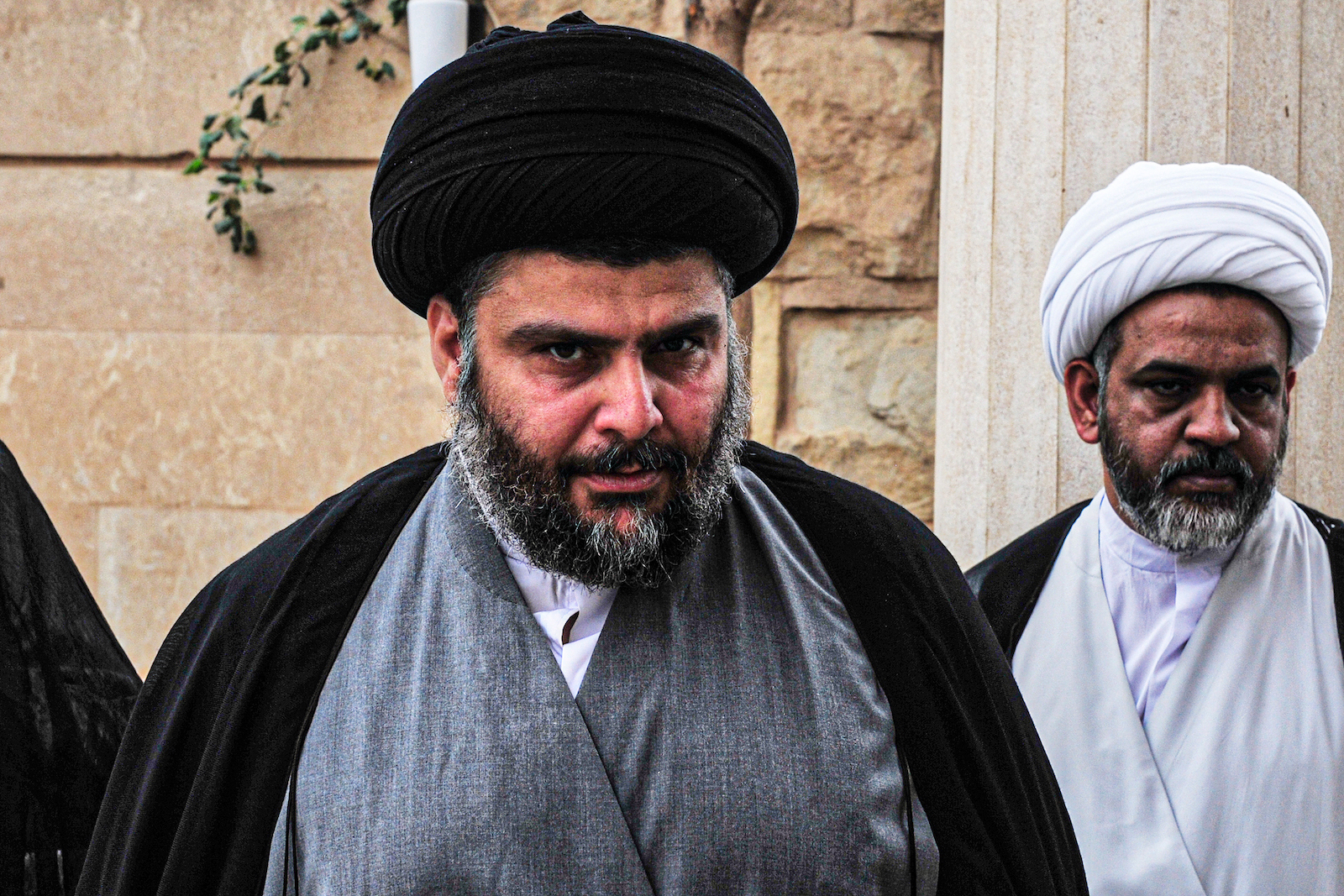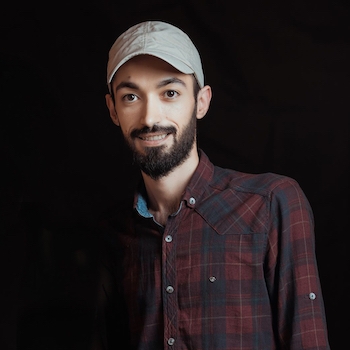
What is Muqtada al-Sadr’s Long Game?
Iraq’s prominent Shia cleric Muqtada al-Sadr shook the country’s political landscape earlier this month after ordering MPs from his Sadrist Movement to withdraw from the parliament. Once believed to be a kingmaker, Sadr has stepped out of the rough political arena now, leaving many to wonder what is his long-term strategy.
Sadr won 73 seats in the last parliamentary elections held in October of last year, becoming the largest faction after forming an alliance with the Kurdistan Democratic Party (KDP) and Sunni’s Siyada (Sovereignty) Coalition. They worked for months to form a new government, but their every attempt was blocked by the pro-Iran Shiite factions known as the Coordination Framework, which held nearly one-third of the parliament, just enough to prevent the Sadrists from forming a “national-majority government” that could exclude the pro-Iran Shiite factions and, consequently, limit Tehran’s influence on Iraqi politics.
Last Thursday, 64 new lawmakers were sworn in to replace the resigned MPs from the Sadrist Movement. Under Iraqi law, the vacated seats should be filled by those who obtained the second highest votes in their electoral constituencies. With the replacement, the pro-Iranian factions now hold nearly 125 out of 329 seats in the parliament. The shift has also brought the Kurds and Sunnis closer to the Coordination Framework, especially as the sides have reportedly agreed to form the next government “based on the three principles of partnership, balance, and consensus,” a condition set by the Kurds to join any future government in Baghdad.
However, with all that said, Sadr will not merely watch his rivals — whom he repeatedly described as “corrupts” — rule a country which made the Sadrist Movement victorious at the ballot boxes. Sadr knew that he did not have a chance to form the national-majority government without the pro-Iran factions, and he had no intention to include them for both his public popularity and personal conflicts he has with the Coordination Framework leaders, especially former Prime Minister Nouri al-Maliki.
Sadr’s withdrawal does not mean stability in Iraqi politics, but it could further escalate the situation. In other words, another period of chaos is not a matter of if, but when.
The populist Shiite politician is aware of the fact that forcing Iraq into another early election is the only way to completely oust his rivals. Meanwhile, he is also aware that calling for a renewed election while still in the parliament would show him as weak. This is not, of course, what a political leader would want especially when he knows how to move the public, pour millions onto the streets, and challenge everyone inside the ring.
In his latest statement, Sadr made it clear that his withdrawal from parliament was not a decision made due to pressure from Iran.
To return to the political process with an upper hand and as a winner, Sadr needs to force Iraq into another snap election. For this, he will need the public. This means widespread protests will be very likely. Sadr has millions of devoted followers. They have proven in the past that one single sentence from Sadr is enough for them to fill the streets in Baghdad and other major cities. Meanwhile, a large number of Iraqis, while not affiliated with Sadr, are ready to join his future protests as they are unhappy about having ‘familiar political faces’ back in the positions in which they failed in the past.
However, some analysts in Iraq suggest that any public protest led by Sadr could backfire on the political process, and it would further complicate the situation. Nadhum Ali Abdullah, an expert at the Arab Forum for Political Analysis, said in a recent statement that the pro-Iran Shiite factions may not be ready to surrender to Sadr’s future challenges. This, ultimately, could lead to violence and bloodshed.
“Sadr’s withdrawal is a message to rival Shiite parties: you may form a government without me, but it will not last for long because it cannot implement comprehensive reforms that the people are waiting for. Instead, the Shiite parties, some of which own armed militias, will plunge into a power struggle,” Abdullah argued. “No mediation means that al-Sadr intends to drag his rivals to the brink by letting them form a government to face the street directly, which he can mobilize due to the Sadrist popular presence in the Shiite community. In addition to the lack of electricity and other public services in the scorching summer, it will add fuel to the fire.”
This means that the game is not over for Sadr and his followers. They are not part of the current developments, but they are monitoring the situation carefully to find the right time for a political comeback. This is, of course, easier said than done, but remains the only prediction for the next move by the hardly predictable Iraqi leader.
